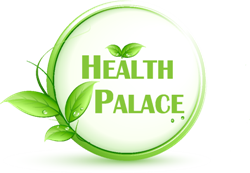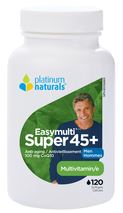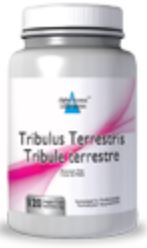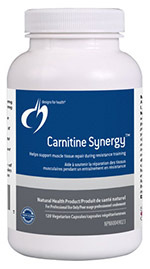How to Restore and Boost Testosterone Levels Naturally? | Natural Testosterone Boosters for Men

How to maintain and Restore Healthy Testosterone Level In Men

Testosterone is the main male hormone which is essential for male sexual health, energy, mood, body composition, and bones. Testosterone levels gradually decrease by ageing contributing to appearance of some disorders including low libido, depression, fatigue, and weight gain. Low testosterone has been found to be related with greater risks of developing metabolic syndrome, cardiovascular disease, and diabetes. This article explores function of testosterone, and the steps to take for maintaining healthy levels of testosterone.
To find out about any hormonal change, series of medical tests are performed. Male hormone tests provide information on free and total testosterone, estradiol (Estrogen), and the ratio of the testosterone to estrogen. This information will help to provide individualized protocols unique to everyone's conditions. (Health Palace provides hormone tests and interpretation for your tests; for more information please contact info@healthpalace.ca)
Free testosterone is the active form of the hormone which includes only 2% of the Total Testosterone. Besides natural decrease in testosterone level due to aging, low free testosterone is usually caused by the following reasons;
- It gets converted to the estrogen
- Some of it get bound to testosterone carrier called SHBG and become non active testosterone and does not get to the tissues in which needs to perform.
- The pituitary gland in the brain for some reasons is not producing enough gonadal stimulating hormone of LH.
- Even thought the LH level reads normal, the Gonadal gland is not able to respond
- Due to adrenal insufficiency; Since some of the male and female hormones are produced by adrenal, low levels of adrenal DHEA may cause lower testosterone.
- Injuries or treatments such as radiation and chemotherapy
- Certain medications such as steroids
Liver is responsible to remove the extra estrogen and SHBG, therefore any disturbance in liver function could affect the healthy hormonal balance. Optimizing the liver function, helps to improve hormone health.
Increased body fat and more specifically abdominal fat contributes to the higher activity of an enzyme called aromatase. Aromatase converts the testosterone to estrogen and its higher activity causes lower level of free testosterone and imbalance ratio of the testosterone to estrogen in men. Moreover, excessive weight suppresses the function of LH hormone in the gonads leading to significant decrease in testosterone production.
Beneficial Functions of Testosterone:

Healthy testosterone level plays an important role in maintaining healthy bone density and better muscle mass. Testosterone also is important in regards to healthy mood and cognition. Low level testosterone has been associated with depression, irritability, lack of focus, and psychological disorders. Unfortunately treatment by antidepressant alone does not fix the low testosterone and actually contributes to low libido as a side effect.
Testosterone provides neuro-protective activity. It prevents the accumulation of beta amyloid protein in the brain. Beta amyloid accumulation in the brain is one of the factors in Alzheimer's disease.
Healthy testosterone level is important for healthy metabolism. Studies suggest diabetic men have lower level of testosterone. Those men with testosterone levels at lower one-third of the reference range are more likely to develop diabetes, high blood pressure, high cholesterol, and cardiovascular disease.
Testosterone also affects the prostate gland. Men with BPH (Benign Prostate Hyperplasia) show higher concentrations of estrogen in the prostate tissue. Prostate health indicators including its volume and PSA level, and urinary symptoms improved when testosterone level was normalized.
How to Address Low Testosterone Level:
Naturally Testosterone levels decrease due to ageing, however it becomes a real concern when tests show a more rapid decline in testosterone levels, when levels stay on the lower end of the normal range, or when the symptoms are observed.
Hormone replacement therapy is an options only when the body is not producing enough testosterone relative to the age and health conditions of the individuals. However, it will not be beneficial and even might be harmful if the symptoms are due to the conversion of testosterone to estrogen, when the liver is not clearing the excess estrogen and HSBG, when the adrenal is compromised, when simply the testosterone ratio to estrogen is low due to exposure to estrogen like toxins or foods, and when it's because of excess weight and nutritional deficiency from poor diet.
Also testosterone replacement therapy is not safe to be used for those with history of Cancer, Heart disease, Blood disease, and sleep disorder as it may contribute to further progression of such conditions. According to the New England Journal of Medicine men on the testosterone replacement therapy have more than 4 times developed cardiovascular disease.
Nutrients to Improve Testosterone & Men Health:
Tribulus terrestris contains an active compound that could convert to DHEA, promoting better adrenal function. Animal studies suggest that tribulus improve sexual function.
Taking adequate amount of antioxidants such as selenium and vitamin E improve the tissue health and the gonadal health. Antioxidants prevent the oxidative damage to the organs and tissues.
In studies amino acid L carnitine was found more efficient than testosterone in improving erectile dysfunction, libido, energy, and mood in men with low hormone production.
Zinc is an important mineral in men's health by playing a role in the pathways through which testosterone and sperms are made. Study on men with low testosterone and sperm count found supplementation by zinc for 2-3 months increased both sperm count and testosterone levels significantly.
Nettle root contains lignans that according to the studies prevent the bounding of the free testosterone to the HSBG, therefore, it helps to improve the level of free testosterone.
In multiple studies supplementing with Ptychopetalum olacoides(Muira Puama) was used as a treatment for men suffered from impotency and loss of libido. Results showed significant improvement in libido, mood, sleep, energy and intimacy.
Vitamin D and Omega 3 fatty acids including EPA and DHA are also shown to reduce the amount of HSBG and help promoting free testosterone levels.
Balanced protein intake in men is found to maintain muscle mass and healthy testosterone level. Men on low protein diet have higher levels of SHBG and that causes reduction in bio active testosterone.
Leafy green vegetables like broccoli and cabbage contain an ingredient called I3C (Indole 3 carbinol). I3C helps to reduce the unwanted estrogen metabolites. Research found this may reduce risk of developing prostate cancer and mainlining healthy testosterone level.
Lifestyle and Balanced Nutrition for Healthy Testosterone

Proper nutrition and diet combined with physical activity is the most natural way to help maintaining right hormonal balance.
Estrogenic foods and toxins have a great impact on hormone health. For example, frequent consumption of soy and soy by products which often used in the food industry contributes to the higher estrogen level due to its high concentration of phyto-estrogenic compounds.
Some plastic materials containing BPA (Bisphenol-A) found in cans, water bottles, and other food packaging interrupt the hormone production.
High sugar content foods and drinks are negatively affecting the hormone health. Based on Endocrine Society reports, High blood glucose level actually decreases the blood testosterone level by 25% and the results were found to be similar for all three groups of pre-diabetic, healthy, and diabetic.
Instead, Foods such as beans, whole grains, nuts, oysters, and lobsters, lean beef and poultry are rich in minerals more specifically Zinc. Usually adult healthy men requires about 10 mg of Zinc daily.
Working with muscles and moderate exercise routine helps to maintain healthy hormone level and prevents the formation of abdominal fat. Several studies confirm that loosing the excess weight through proper diet and exercise improves the testosterone level.
Good restful sleep also helps with keeping good hormone health. According to a research published in the Journal of the American Medical Association, only one week of sleep deprivation causes a significant reduction in testosterone levels in young and healthy men.
Managing mental health and keep the stress, anxiety and depression under control is beneficial for maintaining healthy testosterone level. Stress affects the adrenal glands and promote cortisol production, chronic high levels of cortisol interrupts and lowers testosterone production.
All in all, hormone health for men is as important as it is for women. Taking steps toward maintaining healthy testosterone level not only is beneficial for overall health and well being of men, but also can positively help them keeping balanced mood and healthy intimate relationships.
Articles and products featured by Health Palace are collected from a variety of sources and are provided as a service by Health Palace. These newsletters, while of potential interest to readers, do not necessarily represent the opinions nor constitute the advice of Health Palace. Presented materials are only for information purposes and do not intent to treat, cure, or prevent any disease.
References:
- Allan CA, Strauss BJ, McLachlan RI. Body composition, metabolic syndrome, and testosterone in aging men. Int J Impot Res. 2007 Sep;19(5):448-57.
- Herbst KL, Bhasin S. Testosterone action on skeletal muscle. Curr Opin Clin Nutr Metab Care. May 2004;7(3):271-7.
- Ahlbom E, Prins GS, Ceccatelli S. Testosterone protects cerebellar granule cells from oxidative stress-induced celldeath through a receptor mediated mechanism. Brain Res. Feb 23 2001;892(2):255-62.
- Hogervorst E, Bandelow S, Combrinck M, Smith AD. Low free testosterone is an independent risk factor for Alzheimer's disease. Exp Gerontol. Nov-Dec 2004;39(11-12):1633-39.
- Moffat SD, Zonderman AB, Metter EJ, Blackman MR, Harman SM, Resnick SM. Longitudinal assessment of serum free testosterone concentration predicts memory performance and cognitive status in elderly men. J Clin Endocrinol Metab. Nov 2002;87(11):5001-7.
- Moffat SD, Zonderman AB, Metter EJ, Kawas C, Blackman MR, Harman SM, Resnick SM. Free testosterone and risk for Alzheimer disease in older men. Neurology. 2004;62:188-193.
- Ready RE, Friedman J, Grace J, Fernandez H. Testosterone deficiency and apathy in Parkinson's disease: a pilot study. J Neurol Neurosurg Psychiatry. Sep 2004;75(9):1323-26.
- Rosario ER, Pike CJ. Androgen regulation of beta-amyloid protein and the risk of Alzheimer's disease. Brain Res Rev 2008;57:444–453.
- Salminen EK, Portin RI, Koskinen A, Helenius H, Nurmi M. Associations between serum testosterone fall and cognitive function in prostate cancer patients. Clin Cancer Res. Nov 15 2004;10(22):7575-82.
- Kalyani RR, Dobs AS. Androgen deficiency, diabetes, and the metabolic syndrome in men. Cur Opin in Endocrinol Diab Obesity 2007; 14: 226-234.
- Saad F. and Gooren L, “The role of testosterone in the metabolic syndrome: a review,” Journal of Steroid Biochemistry and Molecular Biology, vol. 114, no. 1-2, pp. 40–43, 2009.
- Selvin E., Feinleib M., Zhang L. et al., “Androgens and diabetes in men: results from the third National Health and Nutrition Examination Survey (NHANES III),” Diabetes Care, vol. 30, no. 2, pp. 234–238, 2007.
- Stanworth R. D. and Jones T. H., “Testosterone in obesity, metabolic syndrome and type 2 diabetes,” Frontiers of Hormone Research, vol. 37, pp. 74–90, 2009.
- Tok EC, Ertunc D, Oz U, Camdeviren H, Ozdemir G, Dilek S. The effect of circulating androgens on bone mineral density in postmenopausal women. Maturitas. Jul 15 2004;48(3):235-42.
- Ali H, Baig M, Rana MF, Ali M, Qasim R, Khem AK. Relationship of serum and seminal plasma zinc levels and serum testosterone in oligospermic and azoospermic infertile men. J Coll Physicians Surg Pak. Nov 2005;15(11):671-3.
- Milasius K, Dadeliene R, Skernevicius J. The influence of the Tribulus terrestris extract on the parameters of the functional preparedness and athletes' organism homeostasis. Fiziol Zh. 2009;55(5):89-96.
- Urtica dioica; Urtica urens (nettle). Monograph. Altern Med Rev. 2007 Sep;12(3):280-4
- Wehr E, Pilz S, Boehm BO, März W, Obermayer-Pietsch B. Association of vitamin D status with serum androgen levels in men. Clin Endocrinol (Oxf). 2010 Aug;73(2):243-8. Epub 2009 Dec 29.
- Bradlow HL. Review. Indole-3-carbinol as a chemoprotective agent in breast and prostate cancer. In Vivo. 2008 Jul-Aug;22(4):441-5.
- Morgentaler A. Testosterone replacement therapy and prostate risks: where's the beef? Can J Urol. Feb 2006;13 Suppl 1:40-3.
- Coutinho T et al. Central obesity and survival in subjects with coronary artery disease: a systematic review of the literature and collaborative analysis with individual subject data. J Am Coll Cardiol. 2011 May 10;57(19):1877-86.
- Fukui M, Kitagawa Y, Ose H, Hasegawa G, Yoshikawa T, Nakamura N. Role of endogenous androgen against insulin resistance and athero- sclerosis in men with type 2 diabetes. Curr Diabetes Rev. 2007 Feb;3(1):25-31.
- Goncharov N. P., Katsya G. V., Chagina N. A., and Gooren L. J. “Testosterone and obesity in men under the age of 40 years,” Andrologia, vol. 41, no. 2, pp. 76–83, 2009.
- Orengo CA, Fullerton G, Tan R. Male depression: a review of gender concerns and testosterone therapy. Geriatrics. Oct 2004;59(10):24-30.
- Colantoni A, Emanuele MA, Kovacs EJ, Villa E, Van Thiel DH. Hepatic estrogen receptors and alcohol intake. Mol Cell Endocrinol. Jul 31 2002;193(1-2):101-4.
- Martina V, Benso A, Gigliardi VR, Masha A, Origlia C, Granata R, Ghigo E. Short-term dehydroepiandrosterone treatment increases platelet cGMP production in elderly male subjects. Clin Endocrinol (Oxf). 2006 Mar;64(3):260-4
Alpha Science Lib-FX (Libido Formula) 120 ml
|
Platinum Naturals Super Easymulti For Men 45 Plus 120 Softgels |
Brad King Ultimate Male Energy 120 Capsules | |||||||
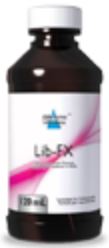 Lib-FX is a very safe, natural and powerful formula with a combination of nine herbs specially blended to enhance sexual health for men and women and indicated for impotence, premature ejaculation, erectile dysfunction, low fertility and low libido. |
AHCC provides antioxidants. The active ingredients of AHCC include acetylated alpha and beta glucans and saccharides of low molecular weight (5 kDaltons) for optimal bioavailability.... |
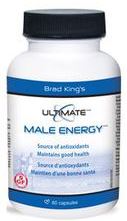 Ultimate Male Energy™ contains a combination of ingredients designed to enhance male health. Key ingredients in the formula include nettle extract, chrysin, indole-3-carbinol... |
|||||||
|
|
|
|
|
|
|||||
|
|
|
|
|||||||
| Dr. Whitaker Prostate Health 120 Softgels | Alpha Science Tribulus Terrestris 120 Capsules |
|
|
||||||
|
...Read more |
|
• An antioxidant for the maintenance of good health • Helps support muscle tissue repair during resistance training...
|
|||||||
|
|
|
Recent Posts
-
Maintain A Healthy Heart Rhythm With Integrative Medicine
Maintain A Healthy Heart Rhythm With Integrative Medicine;Usually, abnormal heart rate or arrhythmi …4th Feb 2021 -
How To Protect Against COVID-19
Coronaviruses are a large group of viruses that cause many common human and animal infections. In hu …30th Jun 2020 -
How to Prevent Gallstones from Forming? | Natural Supplements for Gallstones
How To Prevent Gallstone Formation?Gallstones are hard deposits made of cholesterol or bilirubin f …4th Mar 2020
